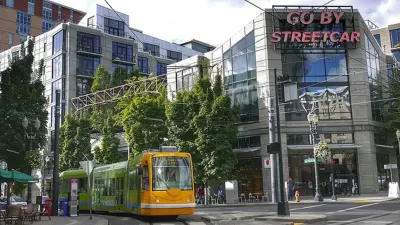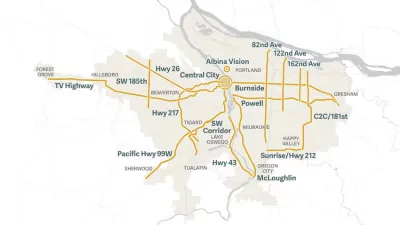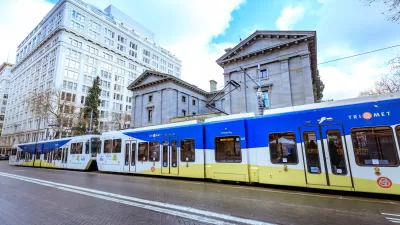In the first part of a series examining the failure of Portland-area fair housing, Brad Schmidt explains how a region that prides itself on its progressive values and openness to diversity is "harboring a form of institutionalized racial inequity."
The four-part investigative series launched by The Oregonian, titled "Locked Out," looks at how public agencies in Portland and its surrounding counties have failed to fulfill the requirements attached to the $170 million a year in federal money they receive for affordable housing. By accepting such funds, the agencies are bound by the federal Fair Housing Act to spread affordable housing across neighborhoods, and avoid concentrating poverty or people of color. "In taking the money," Schmidt notes, "they explicitly promise to identify and dismantle barriers to those efforts."
Unfortunately, in findings that echo a recent report out of Texas, Schmidt's investigation has discovered, "That's not happening."
"Instead, residents who could most benefit from good schools, safe streets, abundant grocery stores, nearby parks and high-achieving role models are largely locked out of the neighborhoods that have them."
"Schmidt's investigation found that taxpayer money meant to help break down segregation and poverty is instead reinforcing it. Housing is subsidized in the poorest neighborhoods and often in areas with above-average minority populations. And few poor people and people of color get to live in desirable communities such as inner Southeast Portland and Lake Oswego."
FULL STORY: Failure to support Fair Housing Act leads to subsidized segregation: Locked Out, Part 1

Alabama: Trump Terminates Settlements for Black Communities Harmed By Raw Sewage
Trump deemed the landmark civil rights agreement “illegal DEI and environmental justice policy.”

Planetizen Federal Action Tracker
A weekly monitor of how Trump’s orders and actions are impacting planners and planning in America.

Why Should We Subsidize Public Transportation?
Many public transit agencies face financial stress due to rising costs, declining fare revenue, and declining subsidies. Transit advocates must provide a strong business case for increasing public transit funding.

Understanding Road Diets
An explainer from Momentum highlights the advantages of reducing vehicle lanes in favor of more bike, transit, and pedestrian infrastructure.

New California Law Regulates Warehouse Pollution
A new law tightens building and emissions regulations for large distribution warehouses to mitigate air pollution and traffic in surrounding communities.

Phoenix Announces Opening Date for Light Rail Extension
The South Central extension will connect South Phoenix to downtown and other major hubs starting on June 7.
Urban Design for Planners 1: Software Tools
This six-course series explores essential urban design concepts using open source software and equips planners with the tools they need to participate fully in the urban design process.
Planning for Universal Design
Learn the tools for implementing Universal Design in planning regulations.
Caltrans
Smith Gee Studio
Institute for Housing and Urban Development Studies (IHS)
City of Grandview
Harvard GSD Executive Education
Toledo-Lucas County Plan Commissions
Salt Lake City
NYU Wagner Graduate School of Public Service





























